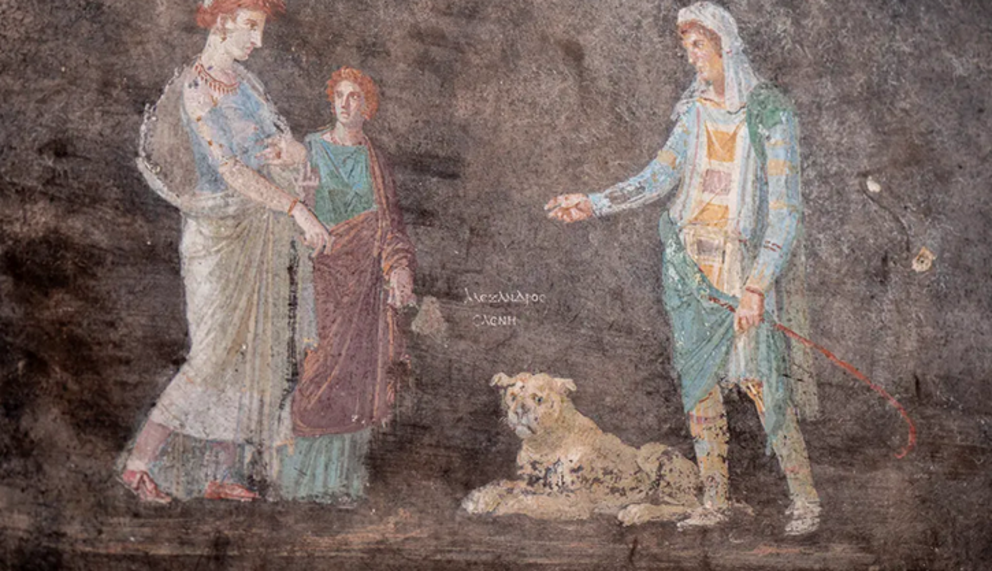Pompeii: Breathtaking new paintings found at ancient city
Stunning artworks have been uncovered in a new excavation at Pompeii, the ancient Roman city buried in an eruption from Mount Vesuvius in AD79.
Archaeologists say the frescos are among the finest to be found in the ruins of the ancient site.
Mythical Greek figures such as Helen of Troy are depicted on the high black walls of a large banqueting hall.
The room's near-complete mosaic floor incorporates more than a million individual white tiles.
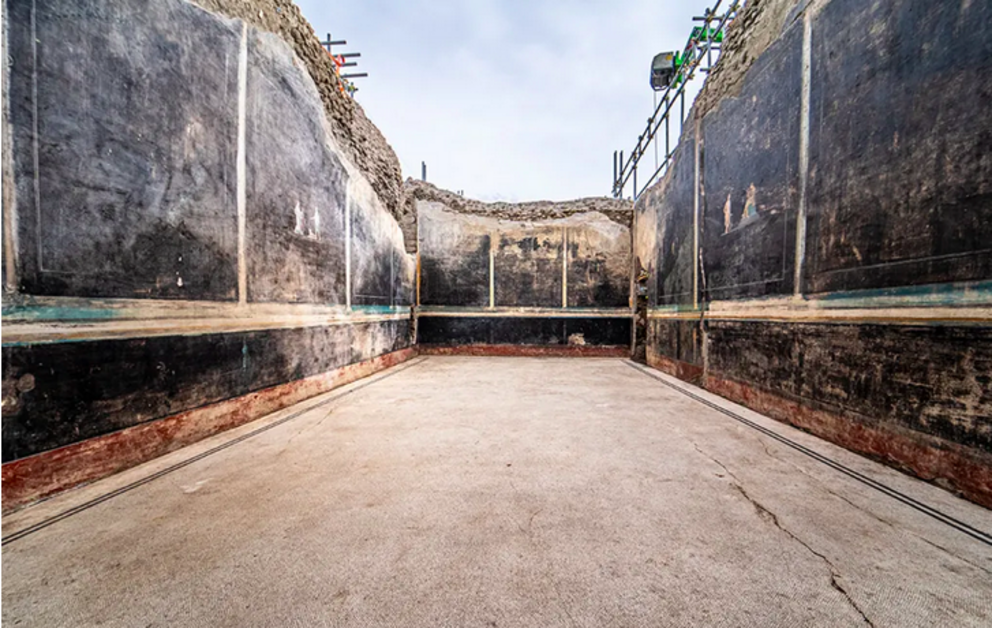 The black room has only emerged in the last few weeks. Its white mosaic floor is almost complete. BBC/Tony Jolliffe
The black room has only emerged in the last few weeks. Its white mosaic floor is almost complete. BBC/Tony Jolliffe
A third of the lost city has still to be cleared of volcanic debris. The current dig, the biggest in a generation, is underlining Pompeii's position as the world's premier window on the people and culture of the Roman empire.
Park director Dr Gabriel Zuchtriegel presented the "black room" exclusively to the BBC on Thursday.
It was likely the walls' stark colour was chosen to hide the smoke deposits from lamps used during entertaining after sunset.
"In the shimmering light, the paintings would have almost come to life," he said.
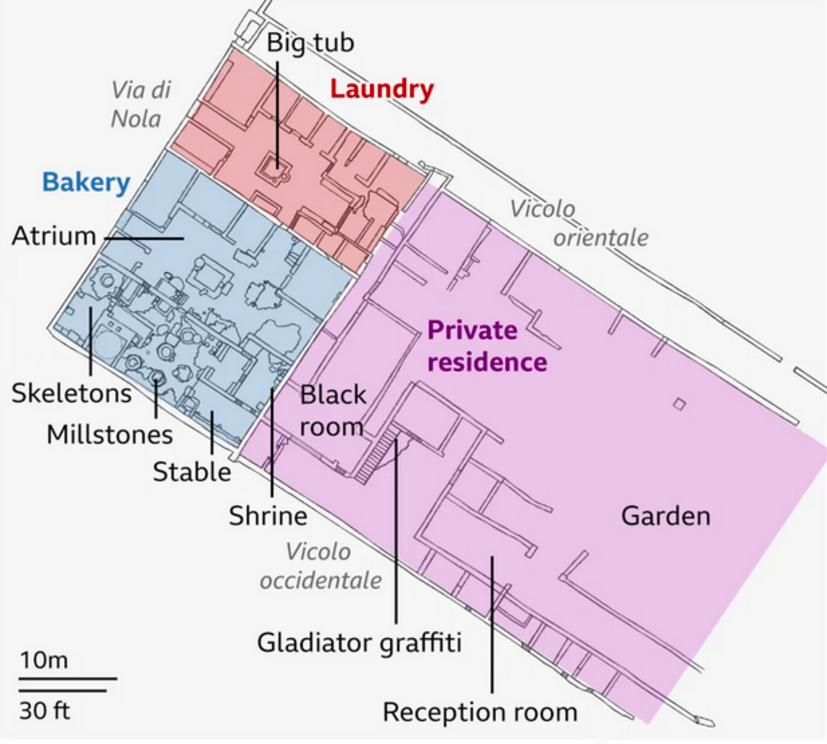 BBC
BBC
Two set-piece frescos dominate.
In one, the god Apollo is seen trying to seduce the priestess Cassandra. Her rejection of him, according to legend, resulted in her prophecies being ignored.
The tragic consequence is told in the second painting, in which Prince Paris meets the beautiful Helen - a union Cassandra knows will doom them all in the resulting Trojan War.
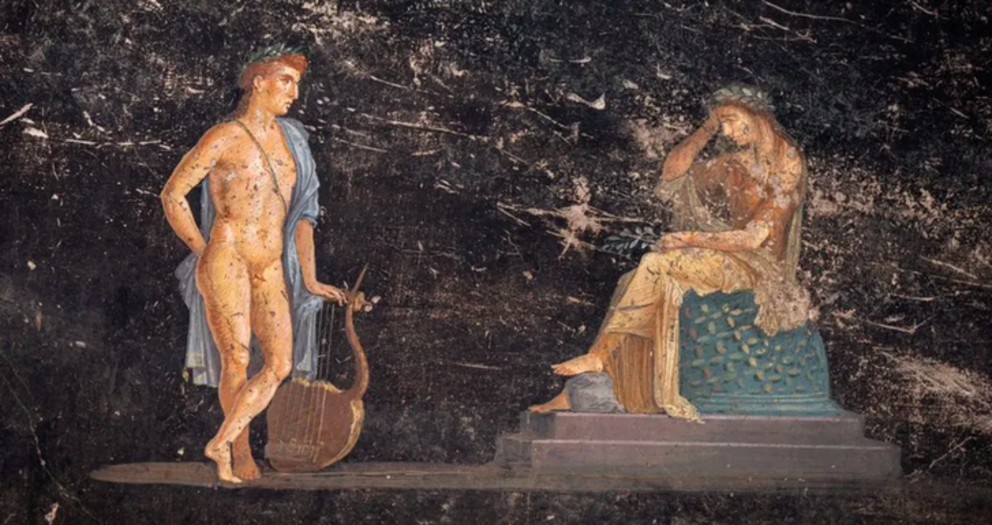 The god Apollo is depicted on one of the frescos trying to seduce the Trojan priestess Cassandra. BBC/Tony Jolliffe
The god Apollo is depicted on one of the frescos trying to seduce the Trojan priestess Cassandra. BBC/Tony Jolliffe
The black room is the latest treasure to emerge from the excavation, which started 12 months ago - an investigation that will feature in a documentary series from the BBC and Lion TV to be broadcast later in April.
A wide residential and commercial block, known as "Region 9", is being cleared of several metres of overlying pumice and ash thrown out by Vesuvius almost 2,000 years ago.
Staff are having to move quickly to protect new finds, removing what they can to a storeroom.
For the frescos that must stay in position, a plaster glue is injected to their rear to prevent them coming away from the walls. Masonry is being shored up with scaffolding and temporary roofing is going over the top.
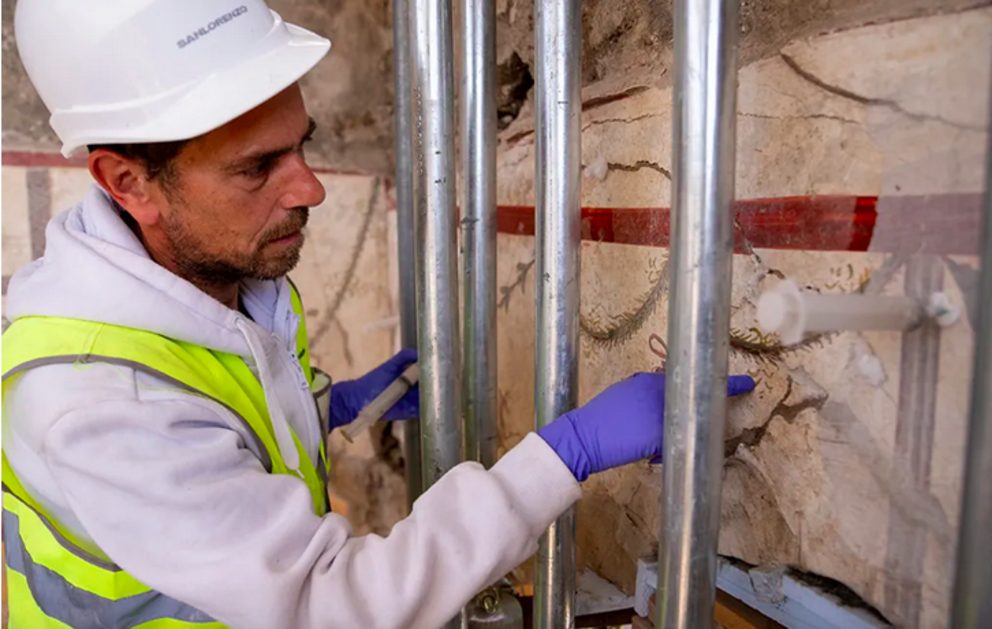 A plaster glue must be injected behind a fresco or it is likely to come away from the wall. BBC/Tony Jolliffe
A plaster glue must be injected behind a fresco or it is likely to come away from the wall. BBC/Tony Jolliffe
Chief restorer Dr Roberta Prisco spent Tuesday this week trying to stop an arch from collapsing.
"The responsibility is enormous; look at me," she said, as if to suggest the stress was taking a visible toll on her.
"We have a passion and a deep love for what we're doing, because what we're uncovering and protecting is for the joy also of the generations that come after us."
For the rest of this article please use source link below

